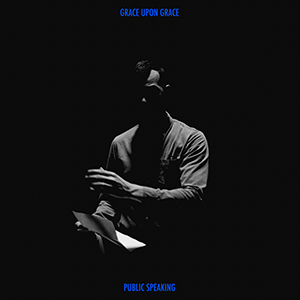 Close on the heels of last year's Caress, Redact, the latest work from Public Speaking’s Jason Anthony Harris (along with some friends) is an even further refinement of his deconstruction of soulful pop and R&B sounds. With equal measures vocals, piano, found sounds, and synth noises, he shapes these disparate elements into catchy songs, albeit within a depressing and bleak context.
Close on the heels of last year's Caress, Redact, the latest work from Public Speaking’s Jason Anthony Harris (along with some friends) is an even further refinement of his deconstruction of soulful pop and R&B sounds. With equal measures vocals, piano, found sounds, and synth noises, he shapes these disparate elements into catchy songs, albeit within a depressing and bleak context.
Hotter than July. This week's episode has plenty of fresh new music by Marie Davidson, Kim Gordon, Mabe Fratti, Guided By Voices, Holy Tongue meets Shackleton, Softcult, Terence Fixmer, Alan Licht, pigbaby, and Eiko Ishibashi, plus some vault goodies from Bombay S Jayashri and Pete Namlook & Richie Hawtin. Solstice moon in West Midlands, UK photo by James. Get involved: subscribe, review, rate, share with your friends, send images! |



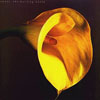 Easily the most maligned release in Swans' discography, there is a definite awkwardness to it, no doubt in part to major label pressures and the heavy hand of Bill Laswell on the production. However, listening to the material in context, it does show the evolution of the band's sound, even with its obtuseness. While it does have a certain "sore thumb" quality to it, it is a necessary evolutionary step for the band that’s flawed, and a flawed Swans album is better than most other bands at their best.
Easily the most maligned release in Swans' discography, there is a definite awkwardness to it, no doubt in part to major label pressures and the heavy hand of Bill Laswell on the production. However, listening to the material in context, it does show the evolution of the band's sound, even with its obtuseness. While it does have a certain "sore thumb" quality to it, it is a necessary evolutionary step for the band that’s flawed, and a flawed Swans album is better than most other bands at their best.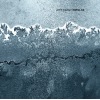 This is the kind of music that makes my brain feel like it is chewing itself. The five short works here act as a kind of clearing house for my mind; listening enforces defragmentation. These works act like miniature vacuum cleaners, erasing all the info-garbage that tends to accumulate after a few uninterrupted hours of total media immersion. Visceral and cacophonous it reminds me I have a body. Listening to noise is healthy.
This is the kind of music that makes my brain feel like it is chewing itself. The five short works here act as a kind of clearing house for my mind; listening enforces defragmentation. These works act like miniature vacuum cleaners, erasing all the info-garbage that tends to accumulate after a few uninterrupted hours of total media immersion. Visceral and cacophonous it reminds me I have a body. Listening to noise is healthy.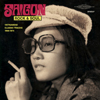 In characteristic Sublime Frequencies fashion, Mark Gergis' latest compilation documents a truly unique and flourishing scene that very few people even knew existed. It is hard to think of many positive things that came out of the Vietnam War but the free exchange of music and equipment between American soldiers and Saigon's hipper young musicians certainly resulted in some raucous and inventive music that could not have otherwise existed. Punk would have had no reason to happen if rock music had been this wild in the Western world in the mid-'70s.
In characteristic Sublime Frequencies fashion, Mark Gergis' latest compilation documents a truly unique and flourishing scene that very few people even knew existed. It is hard to think of many positive things that came out of the Vietnam War but the free exchange of music and equipment between American soldiers and Saigon's hipper young musicians certainly resulted in some raucous and inventive music that could not have otherwise existed. Punk would have had no reason to happen if rock music had been this wild in the Western world in the mid-'70s. The origins of this compilation read like the plot to an quirky indie comedy: a German musicologist misplaces his passport, loses his luggage, misses his flight, and winds up taking a completely different flight. When he arrives at his revised destination, he spends some time with a compelling eccentric, some unexpected things happen, and the experience changes the course of his life. The eccentric character in this instance was Dick Essilfe-Bonzie, a producer for Ghana's influential indie label Essiebons, and reluctant caretaker of a mountain of forgotten recordings that Polygram never bothered to collect when they took over.
The origins of this compilation read like the plot to an quirky indie comedy: a German musicologist misplaces his passport, loses his luggage, misses his flight, and winds up taking a completely different flight. When he arrives at his revised destination, he spends some time with a compelling eccentric, some unexpected things happen, and the experience changes the course of his life. The eccentric character in this instance was Dick Essilfe-Bonzie, a producer for Ghana's influential indie label Essiebons, and reluctant caretaker of a mountain of forgotten recordings that Polygram never bothered to collect when they took over.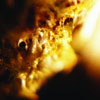
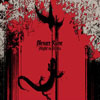
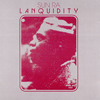 Sun Ra is one of the most challenging and innovative composers of the 20th century. He has a stupefyingly enormous discography, he espoused an enigmatic philosophy of cosmic proportions, and his music is often full of dense and unconventional sounds. Knowing where to start can be difficult, digesting his more experimental recordings even more so. For these reasons, and because of its once rare status, 1978's Lanquidity has long been among the most coveted Sun Ra records. It blends the Arkestra's characteristically obtuse performances and noisy tendencies with strong melodies, fat bass lines, and relatively straightforward rhythms. It's an excellent record for beginners and maybe the most accessible Sun Ra album ever recorded.
Sun Ra is one of the most challenging and innovative composers of the 20th century. He has a stupefyingly enormous discography, he espoused an enigmatic philosophy of cosmic proportions, and his music is often full of dense and unconventional sounds. Knowing where to start can be difficult, digesting his more experimental recordings even more so. For these reasons, and because of its once rare status, 1978's Lanquidity has long been among the most coveted Sun Ra records. It blends the Arkestra's characteristically obtuse performances and noisy tendencies with strong melodies, fat bass lines, and relatively straightforward rhythms. It's an excellent record for beginners and maybe the most accessible Sun Ra album ever recorded.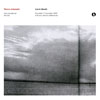 Although this is the first official release from this saxophonist and electronic artist, he has an illustrious list of collaborators, including the likes of Phill Niblock, Tony Conrad, and Borbetomagus. For this reason alone, the bar is set rather high for this album, and luckily Ankersmit lives up to the expectations.
Although this is the first official release from this saxophonist and electronic artist, he has an illustrious list of collaborators, including the likes of Phill Niblock, Tony Conrad, and Borbetomagus. For this reason alone, the bar is set rather high for this album, and luckily Ankersmit lives up to the expectations.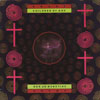 1987’s Children of God marked a significant turning point in Swans' musical career. Prior to this, Michael Gira had hewn slow, heavy and angular blasts of negative energy into violent songs of protest. Releases like Cop, Greed, and the sublime Public Castration is a Good Idea marked Swans out as perhaps the heaviest group at the time both in terms of music style and of thematic content. Gira had sung about rape, murder, power, and slavery like a survivor and the rest of the band played with the same intensity. Suddenly, Children of God represented a massive change in trajectory which saw them taking on a new tender perspective which made the darker passages seem even blacker. Acoustic guitars, femininity and flute vie with Ted Parson’s thundering drums, Gira's growling baritone and an ominous void. This was, and still is, a peerless record.
1987’s Children of God marked a significant turning point in Swans' musical career. Prior to this, Michael Gira had hewn slow, heavy and angular blasts of negative energy into violent songs of protest. Releases like Cop, Greed, and the sublime Public Castration is a Good Idea marked Swans out as perhaps the heaviest group at the time both in terms of music style and of thematic content. Gira had sung about rape, murder, power, and slavery like a survivor and the rest of the band played with the same intensity. Suddenly, Children of God represented a massive change in trajectory which saw them taking on a new tender perspective which made the darker passages seem even blacker. Acoustic guitars, femininity and flute vie with Ted Parson’s thundering drums, Gira's growling baritone and an ominous void. This was, and still is, a peerless record.
